In September 2022, Advance CTE and ECMC Foundation announced the second cohort of The Postsecondary State Career Technical Education (CTE) Leaders Fellowship at Advance CTE—Sponsored by ECMC Foundation. The Advance CTE — ECMCF Fellows include representation across multiple demographic categories reflecting the Fellowship’s goal of intentionally building a postsecondary leadership pipeline for underserved populations in Career Technical Education (CTE) that closes racial representation gaps and removes equity barriers to postsecondary leadership advancement.
This month, we’re excited to highlight two members of Advance CTE’s second cohort of Postsecondary State CTE Leaders Fellows. ECMCF Fellow Danny Sandoval (CO) is already applying the skills he’s acquired in the Fellowship to build his team in meaningful ways.
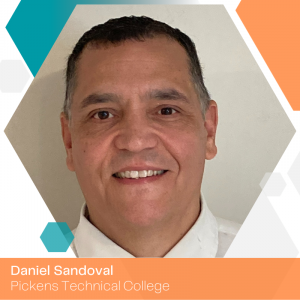 Tell me more about your journey to the Fellowship.
Tell me more about your journey to the Fellowship.
When I first saw the Fellowship advertised, I dismissed it because I wasn’t confident that I was the type of candidate they were looking for. Shortly after, I had a colleague at my institution share it with me, and then I had another colleague who had participated in the first cohort of the Fellowship reach out to try and recruit me. After talking with him, I decided to attend the information session with Dr. Johnson and that was the final nudge I needed to submit my application.
My initial hesitation was due in part to the fact that I didn’t feel like I had enough Career Technical Education (CTE) experience to be considered a good fit for the program. I’d done adjacent work with CTE programs but at that point, I hadn’t worked in CTE, but the Fellowship has allowed me to leverage this experience and it’s been great.
What skills or areas have you experienced the most growth in the program?
I have learned a lot about the operational aspects of CTE, meaning the governance structures, program operation and funding. It’s almost like a conveyor belt humming along under postsecondary that is always moving, so understanding the policies and practices and building a knowledge base of CTE’s significance in the history of our country has been a huge piece for me. Through the Fellowship, I’ve gotten a national perspective of CTE, and how it looks in different states, and I’ve been able to zero in to gain a better understanding of the way programs are organized and interact with industry partners in my own state. This has definitely been an area where I feel like I’ve experienced significant growth over the past year.
Throughout my career, I’ve done a lot of work where I’ve partnered with different industries or different organizations outside of education. It wasn’t until this Fellowship that I made the connection that this work of partnering has been CTE work. Being able to name it and being able to see that my own career journey has also been like a CTE journey has been really reaffirming. Last year, our Pathways Conference in Colorado brought Joel Vargas who was one of the authors of Jobs for the Future’s (JFF) “The Big Blur” report, and his presentation really resonated with me. It is important for people to see that CTE doesn’t have to live in a separate box.
Have you been tapped for new or more advanced roles within your organization as a result of your experience in the Fellowship?
I started a brand new job in the summer of 2020, and it was the first time in my career that I was required to get a CTE license for my role. Taking the steps to maintain my licensure and then continue to elevate my license for professional advancement was a crash course into the world of CTE. This was a brand new position, and the staff didn’t have a plan for what this was going to look like, but I’ve made a lot of connections from hopping into the different professional networks. Fast forward to the present day and I’m now overseeing a team of five people and preparing to hire two more. I went from having almost no budget to being awarded 2.8 million dollars for competitive grants I’ve written. I’m managing multiple grant initiatives and programs and collaborating with external partners to continue to develop additional systems. I’m directly applying the skills and knowledge gained through the Fellowship to execute my vision for my department and even my hiring practices. I’ve been able to see the ways that I can tap the diverse talent in my community. Without the Fellowship, I don’t think I’d have as much clarity around this vision.
When asked about how I’ve managed to acquire these grants, I just say that it comes down to the clear commitment our office has to upskilling and reskilling people of color in our community. We know exactly how to leverage these funds to bring enhanced experiences and opportunities to disadvantaged populations. Marginalized populations can encounter issues – falling flat in leadership roles, or encountering other barriers that keep the momentum from building. The plateau is by design. In order to fight back against that, I have taken the confidence built by the Fellowship and applied these skills to this work. There’s a real purpose driving our implementation and the Fellowship was very instrumental in helping to establish and refine that vision to keep it focused so we aren’t tempted to deviate from it.
How has your experience in the fellowship helped you explore new spaces or positions in postsecondary state CTE leadership?
I feel like the skills I’ve developed through the Fellowship have prepared me for a lot of different roles and expanded my understanding of what type of opportunities would align with my interests.
I’ve been able to attend different conferences in my state and talk with leaders to learn more about their roles in the state CTE landscape. This fellowship has opened doors for me to meet people across the state and beyond and helped me reframe my thinking about what my career trajectory might be. I’ve been able to build up my current role and that momentum excites me. As I continue to build my network by interacting with different folks in state leadership, industry and those working on national initiatives, I feel like the next step will present itself when the time is right.
How has the Fellowship expanded your network?
The Fellowship has expanded my network in a few important ways. I’ve learned a lot from my cohort-mates, attending conferences and hearing from guest speakers during the workshops. I’ve also been able to join Advance CTE’s Kitchen Cabinet on Apprenticeships. This group is advising national policy and it has been a fascinating experience. I’ve been working with my mentor Sonja Wright-McMurray, and I’ve also been able to connect with Dr. Laura Maldonado at Advance CTE. The network is limitless.
You can contact Danny at dpsandoval@aurorak12.org.


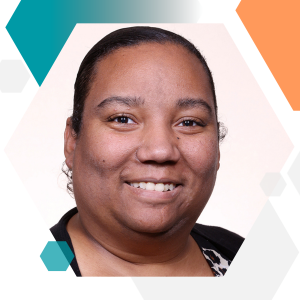


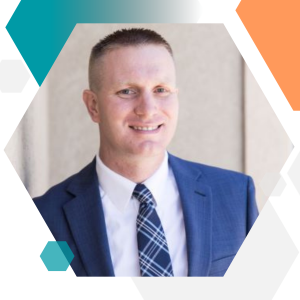
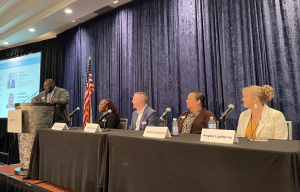 Fellows were also asked to share the key event or events that reinforced their decision to apply to the Fellowship, in other words – when they knew they made the right decision. Dr. Gardner shared that in CTE she rarely has an opportunity to work with or collaborate with other leaders of color across the nation and view the entire landscape of leadership possibilities in postsecondary CTE. The Fellowship offered an opportunity to build a network consisting of her peers, guest speakers invited to the Fellowship workshop and most importantly her coach whom she felt she was perfectly matched with based on their commonalities and interests. She recognized the level of thought the Advance CTE staff dedicated to finding the right mentor for each of the Fellows. Caleb discussed being paired with a postsecondary administrator with an automotive background and how the monthly coaching meetings inspired him to begin seeking the director position he currently holds at his institution.
Fellows were also asked to share the key event or events that reinforced their decision to apply to the Fellowship, in other words – when they knew they made the right decision. Dr. Gardner shared that in CTE she rarely has an opportunity to work with or collaborate with other leaders of color across the nation and view the entire landscape of leadership possibilities in postsecondary CTE. The Fellowship offered an opportunity to build a network consisting of her peers, guest speakers invited to the Fellowship workshop and most importantly her coach whom she felt she was perfectly matched with based on their commonalities and interests. She recognized the level of thought the Advance CTE staff dedicated to finding the right mentor for each of the Fellows. Caleb discussed being paired with a postsecondary administrator with an automotive background and how the monthly coaching meetings inspired him to begin seeking the director position he currently holds at his institution. 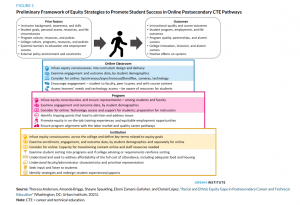
 “When our passion fuels our purpose, we will always blossom where we have been planted and do great work as servant leaders.”
“When our passion fuels our purpose, we will always blossom where we have been planted and do great work as servant leaders.”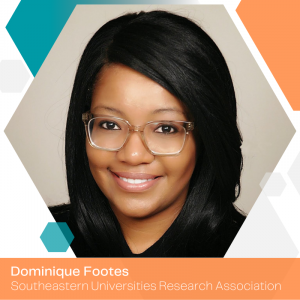 Tell me more about your journey to the Fellowship.
Tell me more about your journey to the Fellowship. Pennsylvania
Pennsylvania Texas
Texas Ohio
Ohio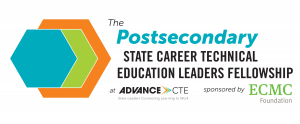
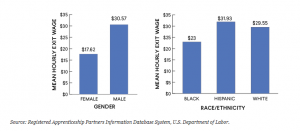
 Congress Focuses on Midterms, Will Return Next Month
Congress Focuses on Midterms, Will Return Next Month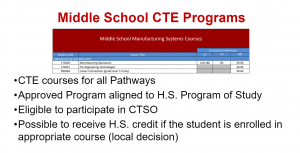 Career advising and development supports geared towards middle grades learners to improve access and achieve high-quality and equitable secondary CTE programs prove to be an early opportunity to develop an occupational identity and better build social capital. Ohio discussed the policy structures the state has put into place to support learners in CTE programs before they enter high school, including funding mechanisms and alignment of middle grades programs of study. Michigan Advance CTE-ECMC Fellow
Career advising and development supports geared towards middle grades learners to improve access and achieve high-quality and equitable secondary CTE programs prove to be an early opportunity to develop an occupational identity and better build social capital. Ohio discussed the policy structures the state has put into place to support learners in CTE programs before they enter high school, including funding mechanisms and alignment of middle grades programs of study. Michigan Advance CTE-ECMC Fellow 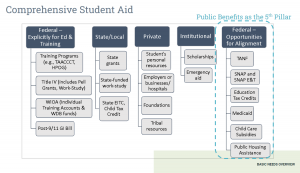 An education consultant and a state leader from Wisconsin provided an overview of programs that support learners basic needs, while elevating that many programs still create barriers for learners to complete credentials. Immediate next steps that were shared included making integrated benefits applications for federal assistance programs available online and inviting benefits coordinators to provide services on campus. Wisconsin highlighted their steps to create affinity groups with faculty and staff, with Dr. Colleen McCabe stating “To understand the effects of poverty, you have to explore learners’ multiple identities.”
An education consultant and a state leader from Wisconsin provided an overview of programs that support learners basic needs, while elevating that many programs still create barriers for learners to complete credentials. Immediate next steps that were shared included making integrated benefits applications for federal assistance programs available online and inviting benefits coordinators to provide services on campus. Wisconsin highlighted their steps to create affinity groups with faculty and staff, with Dr. Colleen McCabe stating “To understand the effects of poverty, you have to explore learners’ multiple identities.” The Delaware Department of Education recently named Jon Wickert as its new Director, Career and Technical Education (CTE) and Science, Technology, Engineering, and Mathematics (STEM) Initiatives. His path to state CTE leadership reflects the power of career exploration and social capital that will sustain ‘The First State’s’ strong record of innovation and transformation of CTE systems.
The Delaware Department of Education recently named Jon Wickert as its new Director, Career and Technical Education (CTE) and Science, Technology, Engineering, and Mathematics (STEM) Initiatives. His path to state CTE leadership reflects the power of career exploration and social capital that will sustain ‘The First State’s’ strong record of innovation and transformation of CTE systems.